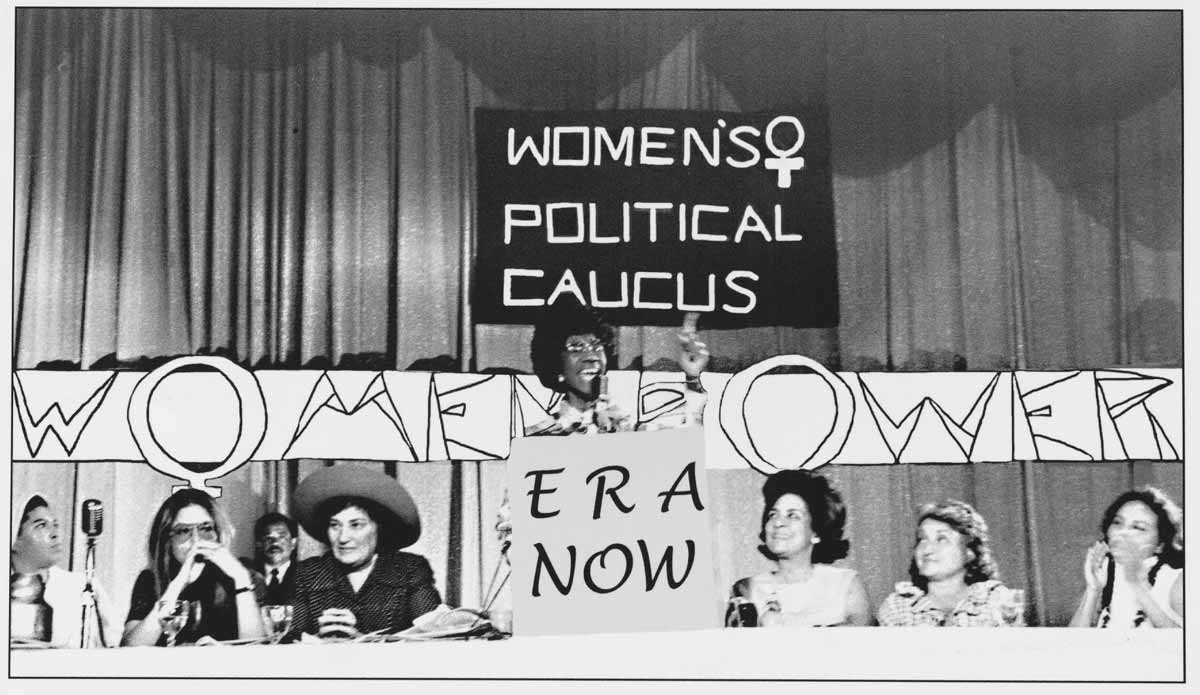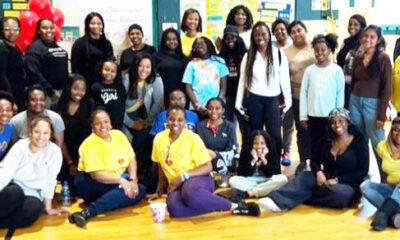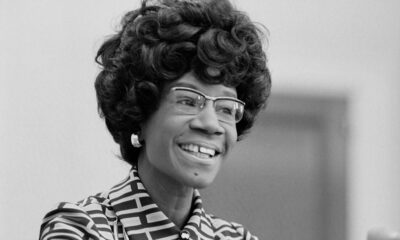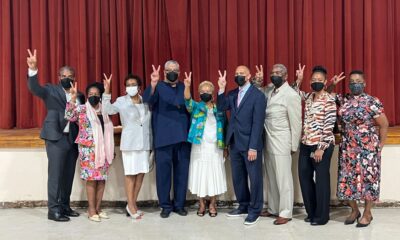Black History
Ahead of Her Time: Chisholm Fought for Women’s Reproductive Rights

By Barbara Bullard
Many politicians would say that Shirley Chisholm inspired them to run for office or seek a career in politics, but her influence goes well beyond that. On the issues of reproductive justice Shirley Chisholm was a visionary who anticipated the political climate of 21st century America. This America is a nation in which there were forced sterilizations and forced deliveries of BIPOC women, the disabled and the poor, with an ongoing fight for access to birth control and contraception. This America is a society where the right to abort a pregnancy out of choice or necessity is under constant threat. Shirley Chisholm was already preparing, prophetically it would seem, for the America of the 21st Century. Some of what she dreamed about for America is just now being implemented. During her tenure, which spanned 1969 to 1983, she was extremely active, served on several key committees and helped to pass major legislation. She founded many organizations within Congress such as the Congressional Black Caucus and the National Women’s Political Caucus.
There has been a good deal of focus on the inspirational aspect of her run for the presidency, but relatively little inquiry about her presidential platform and her vision for America. Chisholm was ahead of her time in wanting to institute a national healthcare system that would take care of Americans from childhood to old age. Chisholm introduced a bill for a National Healthcare System as early as 1972. She would say that “the institutions of this country belong to all of the people who inhabit it.”
Shirley Chisholm brought her fight for the rights of all women to Congress where it took the form of legislative initiative. Chisholm not only gave a rousing speech for the Equal Rights Amendment but was one of the leading forces in its creation. It is exciting to note that the Equal Rights Amendment again gaining momentum in the Capitol. She led the way in the legislature for education and women’s health including her focus on women educators and women in the health industry. Her agenda for women’s health included abortion rights and she specifically defined each American’s private bodily rights.
In 1972, she fully supported Title IX, which was headed by her very good friend Patsy Mink. This historic amendment not only ended discrimination against women’s athletics but empowered women seeking justice against sexual violence and harassment. It made progress toward gender equity in its treatment of pregnant and parenting students. Title IX was an important step in changing the lives of all women in America, but the bill was not perfect at its inception to bring about further change. Shirley spent the next four years traveling the country, speaking to university audiences to make sure they understood the importance of the bill. At Harvard University after explaining Title IX she concluded, “Black women face a double barrier and for them this bill is a priority. We women have to become revolutionaries.” That last call to action is emblematic of her political life.
The stark reality in the 21st Century is that Black mothers are three to four times more likely to die from pregnancy-related causes than white women in the United States. In addition, Black infants in the US are two times more likely to die than white infants.
Some of the same issues that Chisholm was fighting for, we are still fighting for. However, there is current legislation that attempts to eradicate our broken maternal healthcare system. With that said, I believe Chisholm would want us to continue fighting for our reproductive rights with no apologies.











